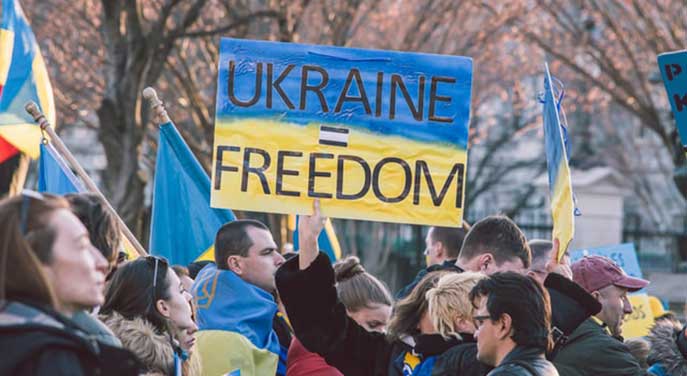 The predictable invasion of Ukraine by Russian dictator Vladimir Putin has put the outgunned Ukrainian forces in a very difficult situation. The leaders of the so-called “Free World” are in an ineffectual muddle. Surprisingly, Germany is finally making solid moves to shore up its military and become a NATO leader. Germany, a NATO financial delinquent, has now changed policy and will spend at least two per cent of GDP on defence, roughly double its previous average.
The predictable invasion of Ukraine by Russian dictator Vladimir Putin has put the outgunned Ukrainian forces in a very difficult situation. The leaders of the so-called “Free World” are in an ineffectual muddle. Surprisingly, Germany is finally making solid moves to shore up its military and become a NATO leader. Germany, a NATO financial delinquent, has now changed policy and will spend at least two per cent of GDP on defence, roughly double its previous average.
Besides providing much-needed weapons, ammunition, and other supplies via Poland to Ukraine, there are many other things that the West could do other than impose sanctions. Foremost among them is to cause more turmoil and aggravation at the Kremlin.
NATO could and should immediately deploy ground, naval, and air forces to the periphery of Russia to distract Putin and cause him to redirect troops away from Ukraine. Possible places for NATO deployment include northern Norway, the Baltic Sea, the Norwegian Sea, the Northwestern Pacific near Vladivostok, the Kamchatka Peninsula, Sakhalin Island and the Aleutians. Turkey is already impeding access to the Black Sea, so NATO cannot go there.
Canada needs to contribute more, including lethal arms. So far, Canada has not announced any increase in military spending despite the increases in global threats, including China’s aggressive actions against its neighbours. Canada currently contributes only 1.27 per cent of its GDP to NATO.
When it comes to defences against Russian counterattacks, the worst would likely be cyberattacks against vulnerable Western networks. It remains mystifying how and why utilities, communications firms, banks, various businesses, and government agencies have direct connections and dependence on networks that can easily be attacked. All operational functions in these organizations should be conducted on secure private networks. If that means that operators must use different receiving terminals to upload enquiries and payments, that seems to be a small inconvenience compared to an attack that shuts down or destroys these vital services. Perhaps the plethora of highly paid IT’ wizards’ can figure out other ways to protect these networks.
Russia exports many goods besides oil and gas, making it especially vulnerable, but so is the EU, its main customer. Nickel, platinum, grain, timber, copper, and fertilizer are major commodities that Russia sells for much-needed foreign currencies. Of course, there should be embargoes on these products. Perhaps all Western trading with Russia should be suspended.
Ukraine tragedy exposes some harsh global realities by Pat Murphy
The unintended consequences of our bad policy decisions
Russia is one of the world’s largest oil and gas exporters, which enables it to embark on hostile military adventures. Indeed, attacks on neighbours coincided with high points in oil prices: the mid-2008 in Georgia, the early 2014’s annexation of Crimea and the Donbas region, and this year’s attack on Ukraine. Stopping Russia from earning from its exports could conceivably end the war in short order.
All imports of Russian gas and oil to Europe and North America should be stopped. Europe, in general, and Germany, in particular, are dangerously dependent on imports of Russian natural gas. Canada and the U.S. should send copious quantities of LNG to Europe. Germany can get gas from expanding the capacity of existing connections to the rest of Western Europe and other pipelines that bring gas to the continent, such as the Algerian line to Italy.
Spring is nearly here. Europe can figure out how to cope, but Putin cannot cope for very long. NATO needs to step up.
Ian Madsen is a Senior Policy Analyst at the Frontier Centre for Public Policy.
Ian is a Troy Media Thought Leader. For interview requests, click here.
The opinions expressed by our columnists and contributors are theirs alone and do not inherently or expressly reflect the views of our publication.
© Troy Media
Troy Media is an editorial content provider to media outlets and its own hosted community news outlets across Canada.

